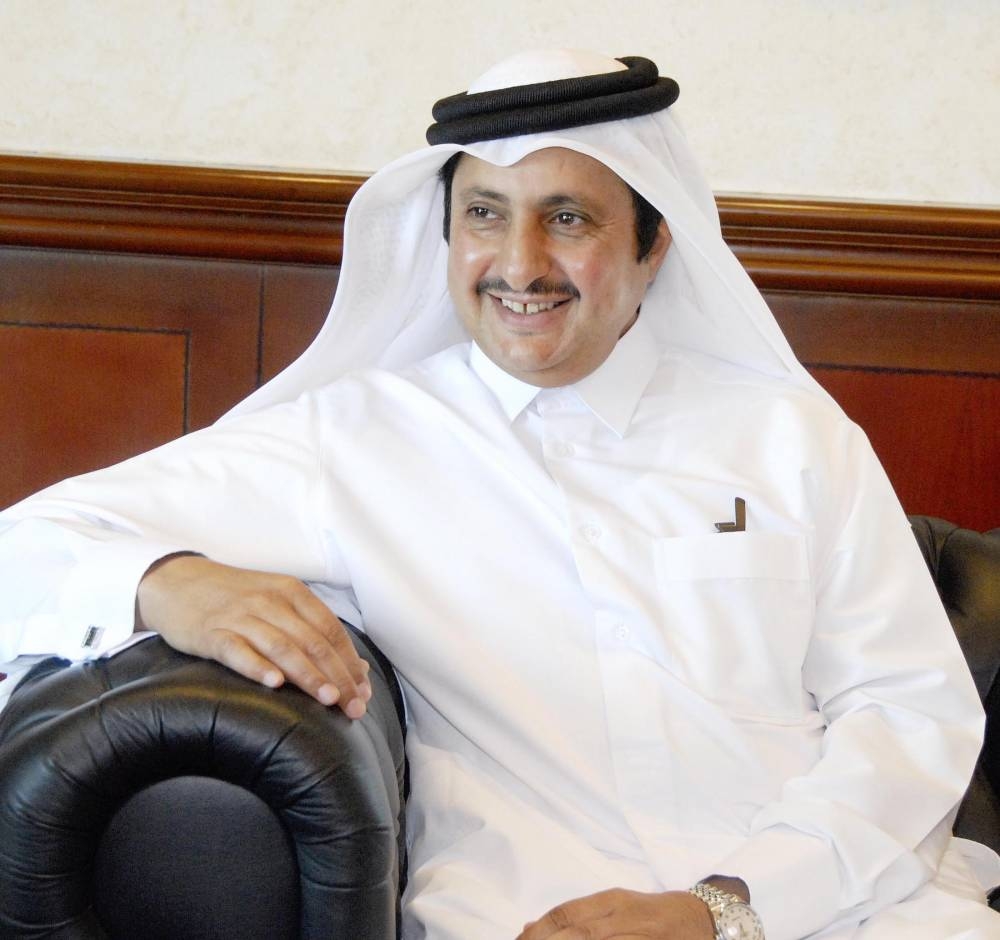Qatar Chamber capped the year with the successful showcase of many national products during the staging of the ‘Made in Qatar 2023’, with the participation of small and large Qatari companies.
Sheikh Khalifa bin Jassim al-Thani, Qatar Chamber chairman, said the participation of 450 companies and factories reflects their keen interest in promoting homegrown products in the local market to achieve the desired self-sufficiency and reduce dependence on imports.
“The expo mainly aims to promote the Qatari industry and products, encourage the use of domestic products, reduce reliance on imports, and bolster the state's initiatives to support the industry. Additionally, it aims to encourage investors and business owners to invest in industrial projects.
“Moreover, the exhibition offers a valuable opportunity to activate the private sector's role in industrial development, expand the productivity of national factories, and foster cooperation and coordination among Qatari firms. It particularly highlights the participation of a select group of Qatari companies and factories that have made significant strides in the industry, along with new exhibitors joining the event for the first time,” he stressed.
In other achievements this 2023, Sheikh Khalifa emphasised that the realisation of Arab economic integration remains a paramount challenge for collective Arab endeavours, particularly in light of global economic dynamics and international economic blocs.
“Indeed, Arab nations possess the essential elements that can facilitate the integration of their economies, including abundant natural resources, a skilled workforce, capital resources, and a strategic geographical location that serves as a bridge between the East and the West, coupled with linguistic unity.
“It is undeniable that achieving Arab economic integration will elevate the economic standing of the Arab world, positioning it as an active and robust economic bloc within the global economy. Such integration is poised to attract investments, generate more employment opportunities, and bolster overall economic growth,” he noted.
In this regard, Sheikh Khalifa stressed that chambers of commerce and industry in Arab nations play a pivotal role in working towards this objective, particularly through collaborative efforts under the Union of Arab Chambers (UAC). During a recent meeting convened by the UAC in Manama, he said discussions revolved around revitalising Arab economic integration and fostering a conducive business environment.
“This collaborative effort is a fundamental pillar for the economic and social development of Arab nations, enabling them to be more integrated into the global economy and better equipped to address international challenges. Moreover, the efforts undertaken by the Gulf States towards achieving Gulf economic integration are instrumental in the pursuit of Arab economic integration.
“In a recent meeting of the Federation of Gulf Co-operation Council Chambers (FGCCC), discussions revolved around bolstering Gulf economic integration and enhancing economic and commercial cooperation among Gulf states, along with supporting public-private partnerships (PPP) across the GCC states,” Sheikh Khalifa said.
In May this year, Qatar Chamber held its Second General Assembly Meeting, which was highlighted by the election of the chamber’s seventh council (2023-2028).
“We are confident that the new board will focus on strengthening the chamber’s role in supporting the private sector and protecting its interests, promoting the national economy and investment climate, and highlighting Qatar as a leading global investment destination and hub for business and investment, as well as enhancing the ease of doing business and attracting foreign investment,” Sheikh Khalifa said.
He said the chamber’s strategy mainly aims to enhance the private sector’s competitiveness, accelerate its growth, and increase its contribution to the state’s economic development, in line with the Qatar National Vision 2030, whose most important pillar is promoting economic diversification and achieving inclusive economic growth.
Sheikh Khalifa said: “During the new council, we will work towards the completion of the chamber’s new headquarters in Lusail City, as we are planning to transfer to a sophisticated and modern building that keeps pace with the state’s economic renaissance in the country.
“Furthermore, we will also focus on organising more activities to support the private sector, promoting the national economy, and expanding meetings with various economic and trade sectors to discuss and find solutions to all issues and obstacles facing the private sector.”
Qatar Chamber also organised earlier this year the Private Sector Forum (PSF), which was held in Doha on the sidelines of the 5th UN Conference on the Least Developed Countries (LDC5).
“In partnership with the UN Office of the High Representative for the Least Developed Countries, Landlocked Developing Countries and Small Island Developing States (UN-OHRLLS) and Microsoft, the event provided a very important opportunity for us to emphasise the chamber’s tireless efforts in providing all kinds of services to support the private sector and enable it to enhance its contributions to economic activity under the Qatar National Vision 2030,” he said.
Sheikh Khalifa added: “The event also highlighted the chamber’s keenness to provide all needed facilitations for private sector companies and institutions to create the best possible environment for businesses."

Sheikh Khalifa bin Jassim al-Thani, Qatar Chamber chairman.

